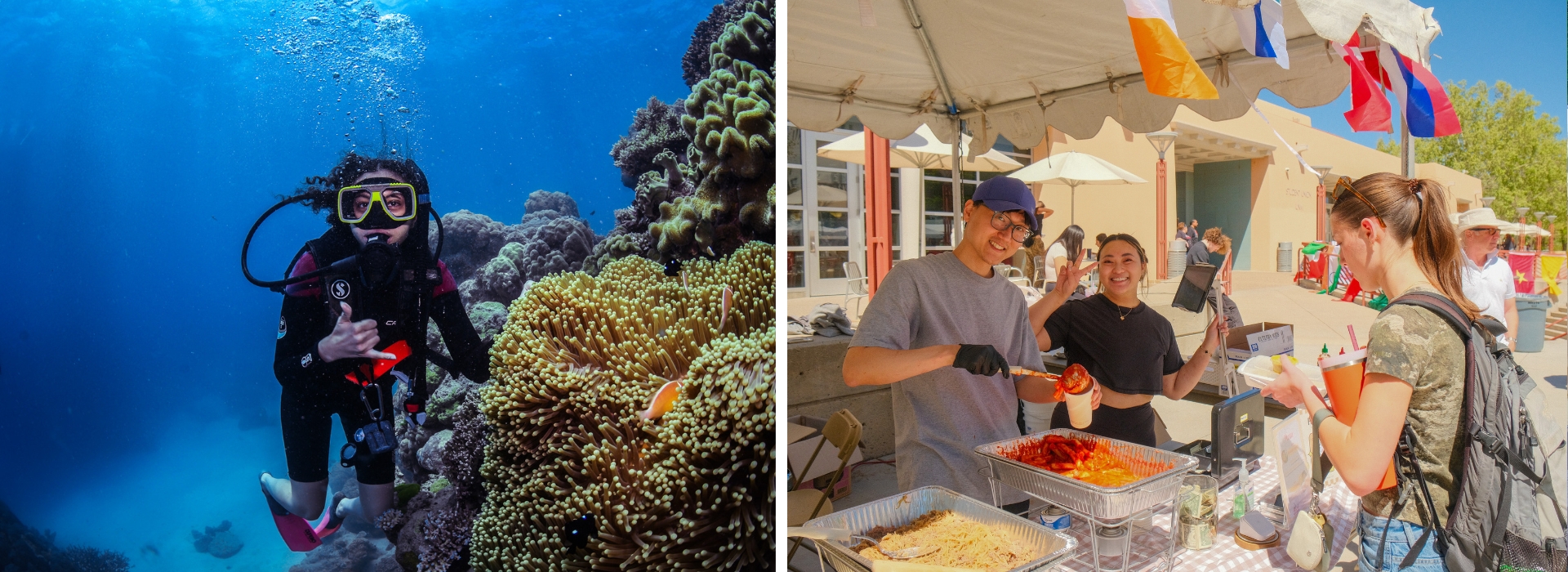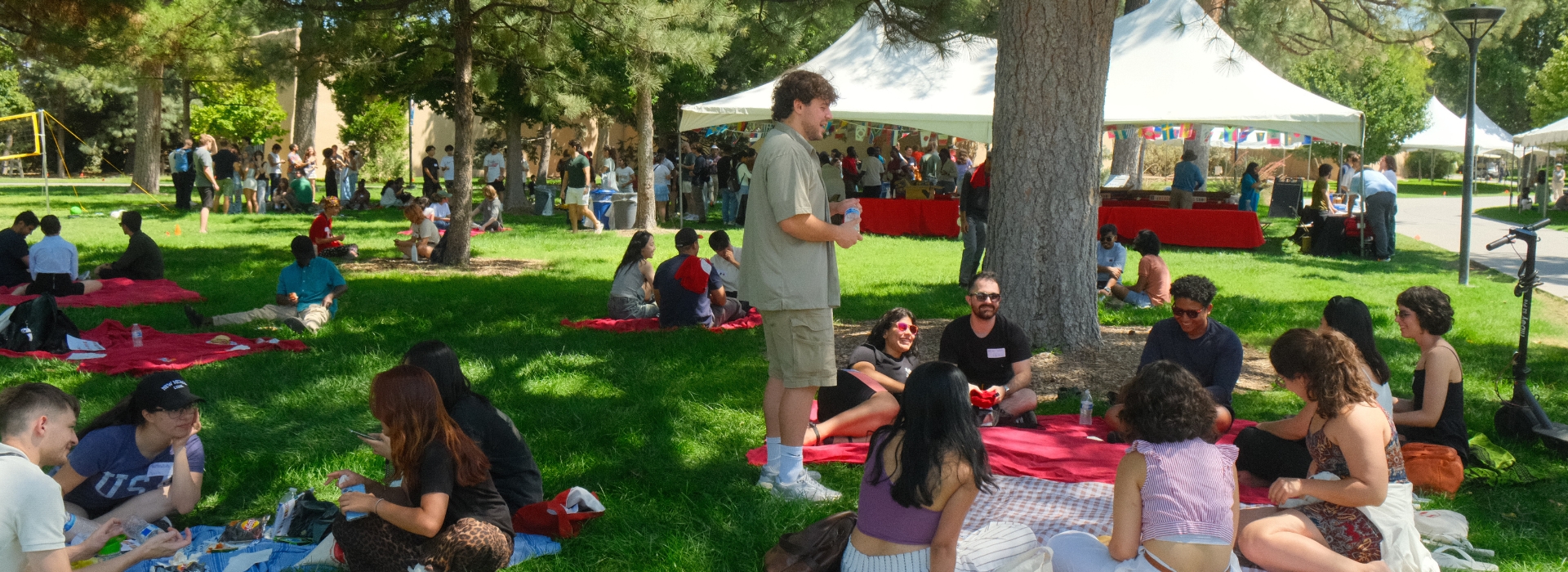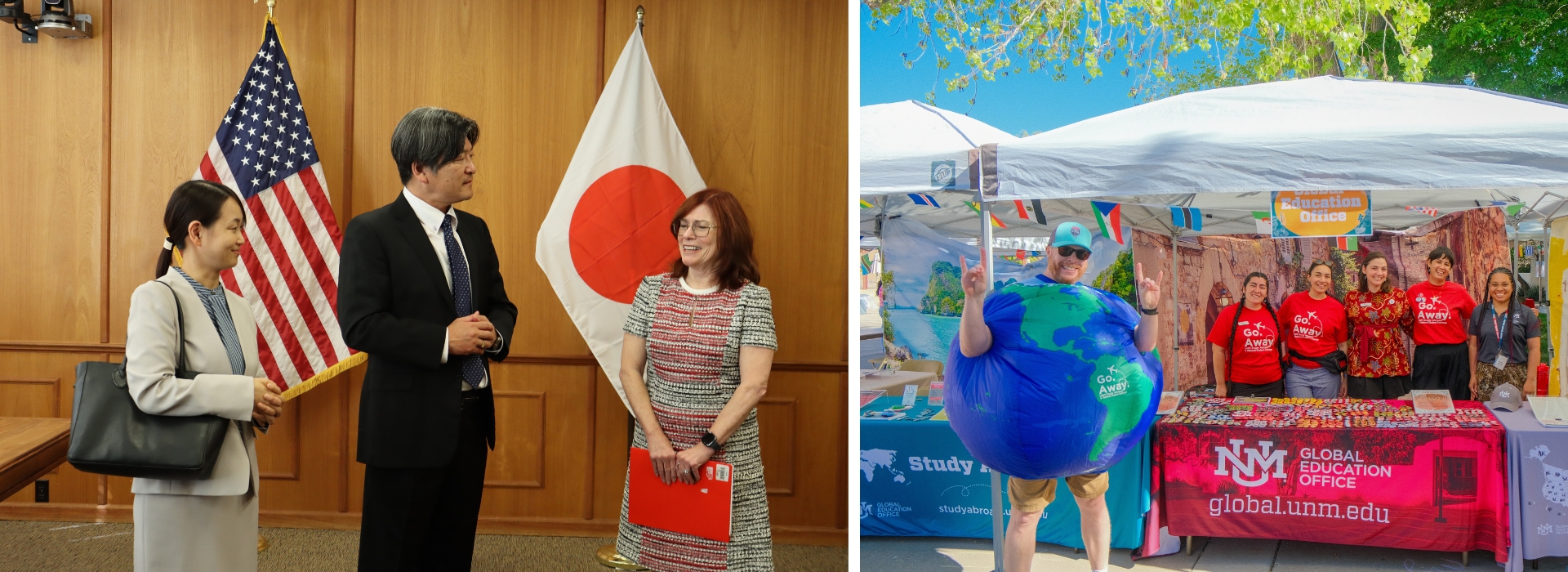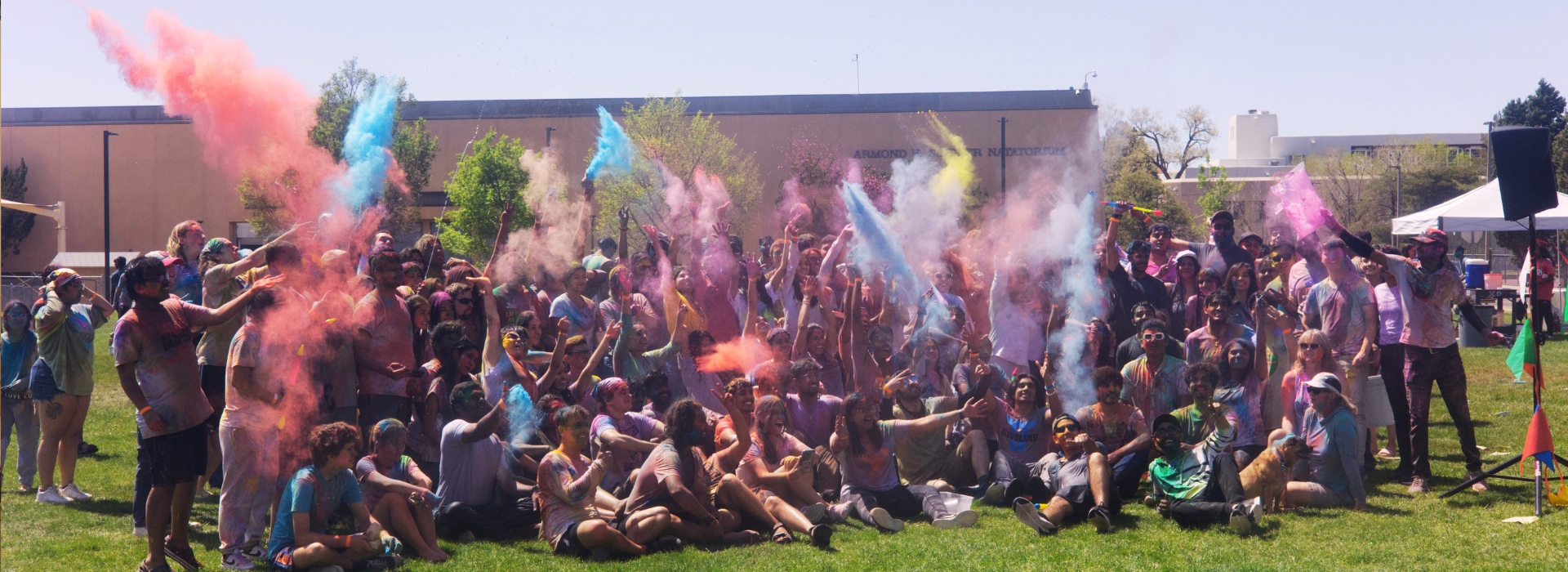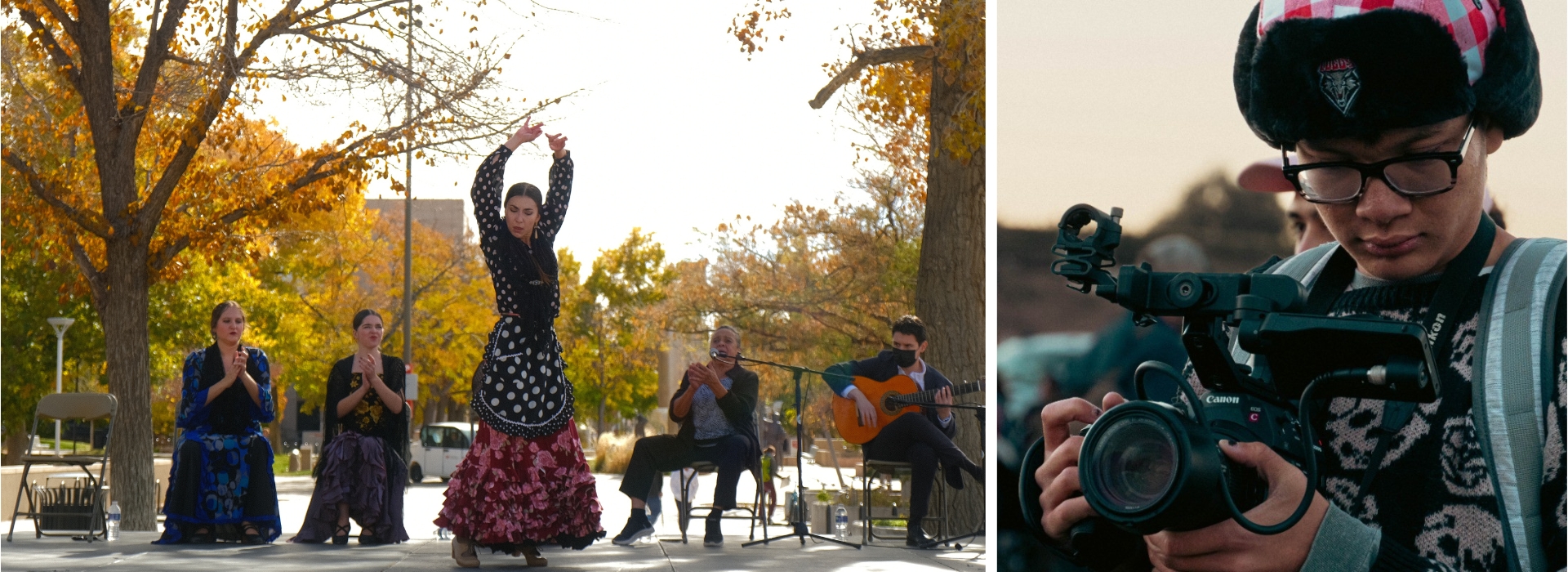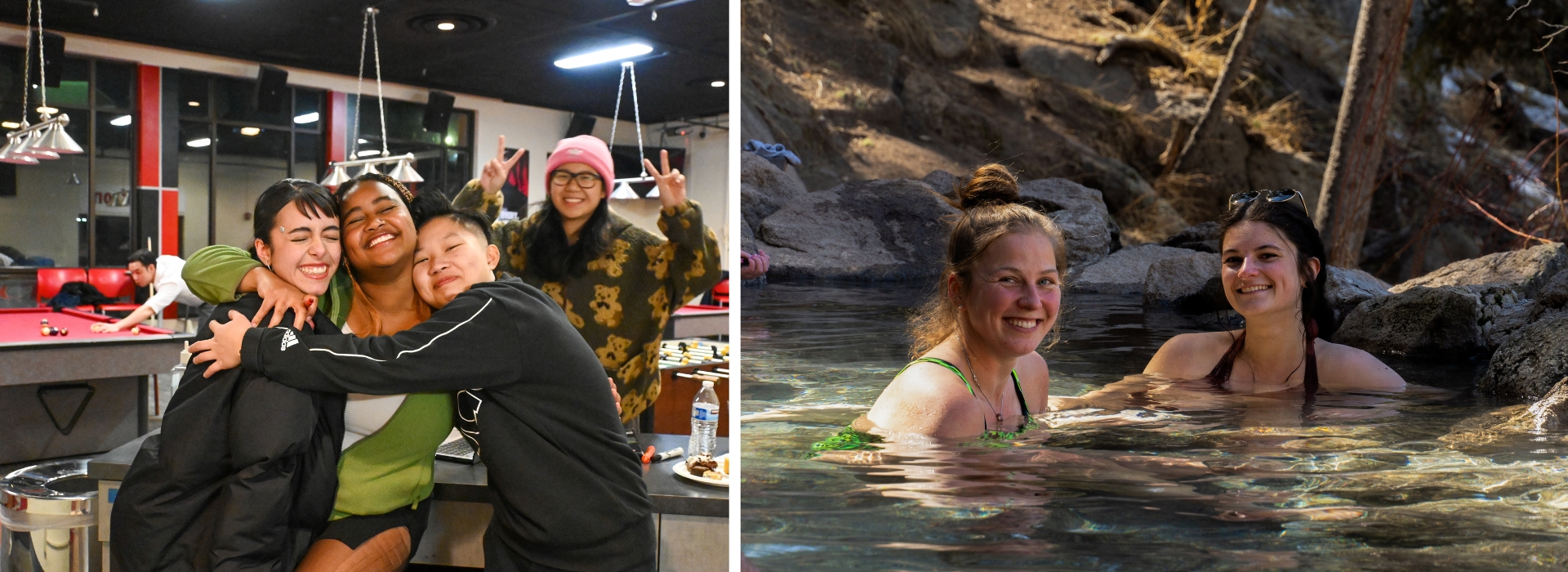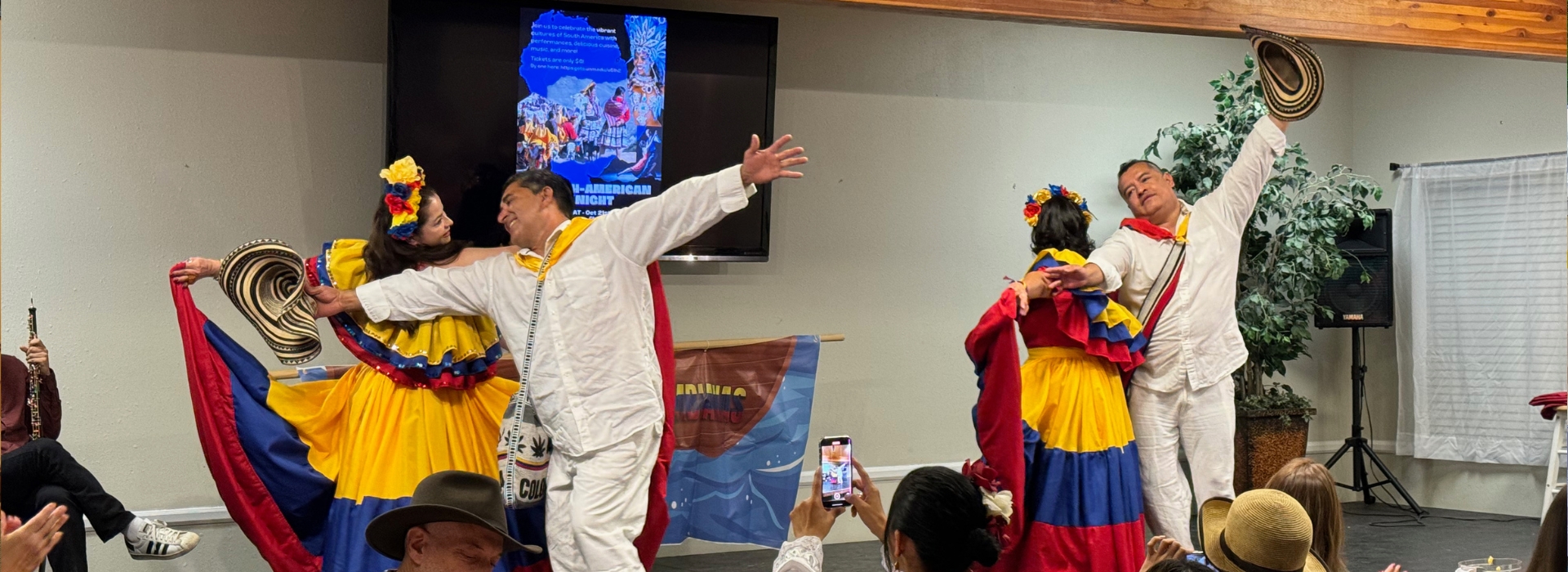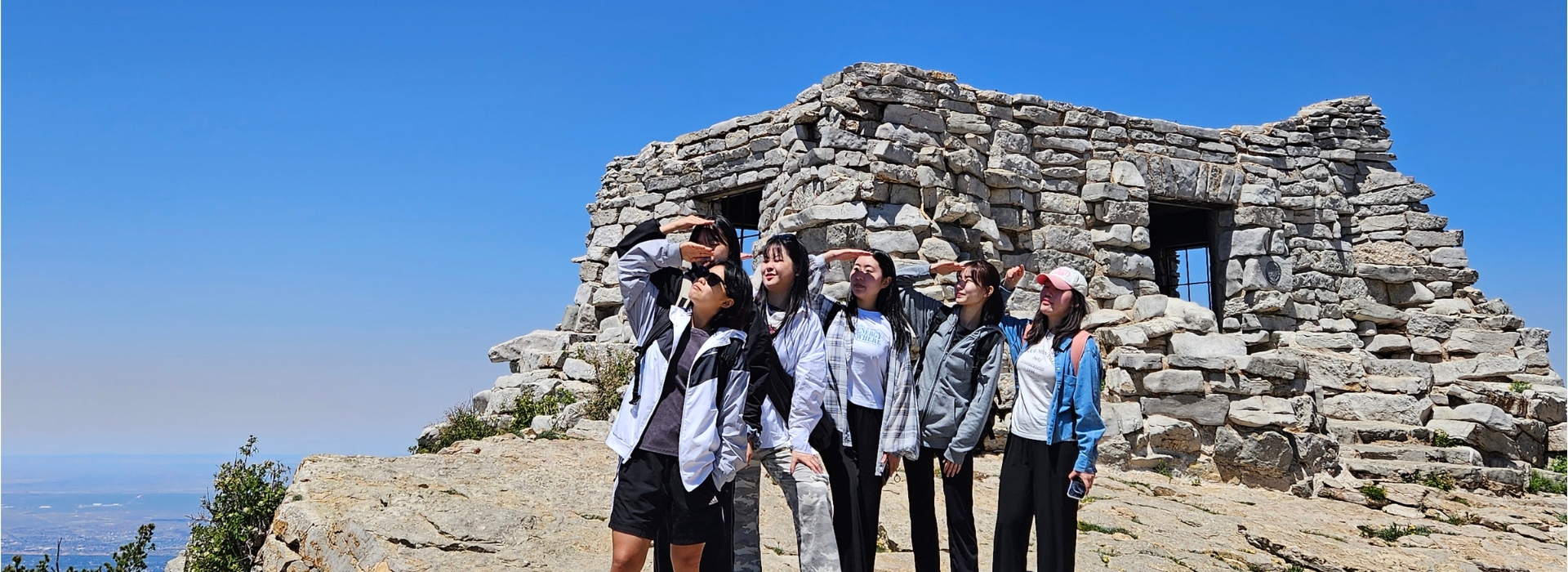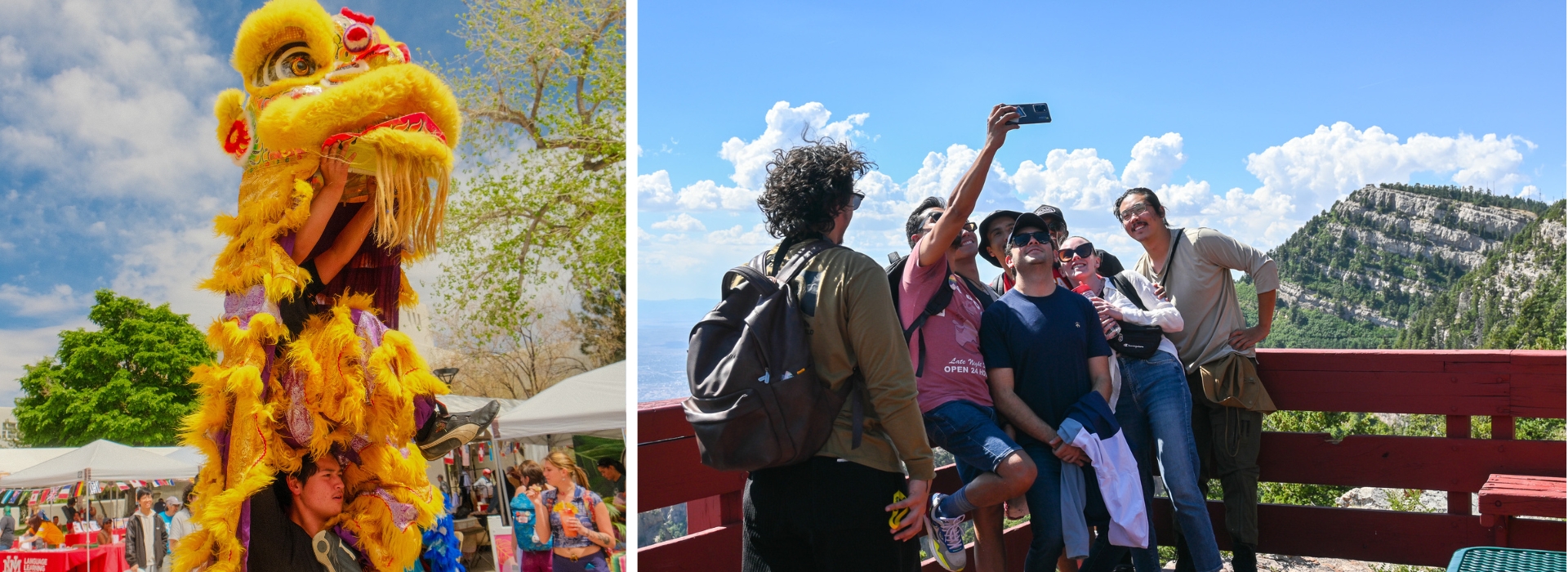Peace Corps Prep
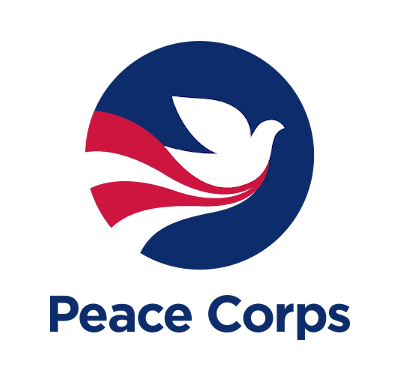
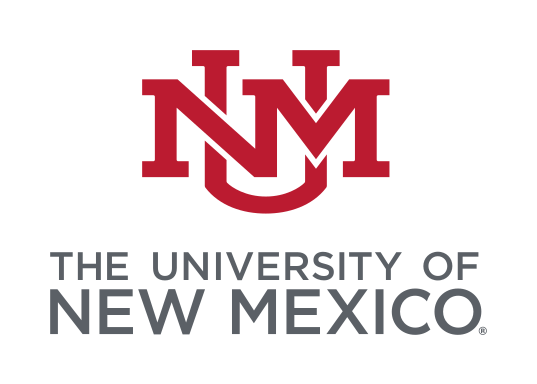
The University of New Mexico is proud to offer the Peace Corps Prep Certificate Program to UNM undergraduate students in good academic standing. The Peace Corps Prep Certificate prepares you to be the best Peace Corps Volunteer you can be by providing coursework, extracurricular and professional development activities that build your competencies proven to benefit Peace Corps service and other intercultural work.
The Peace Corps Prep program creates a framework for you to build four competencies. Integrating coursework with hands-on experience and professional development. Upon completion of the program, you will receive a certificate from the Peace Corps- and a competitive edge when applying for Peace Corps service. The competencies are the following:
- Training and experience in a work sector
- Foreign language skills
- Intercultural competence
- Professional and leadership development
1. Training and experience in a specific work sector
There are six sectors in which Peace Corps volunteers serve, choose one sector to focus on. Complete three courses and accumulate 50 hours of volunteer or work experience in one of the following specific work sectors
- Education
- Health
- Agriculture
- Environment
- Youth in Development
- Community economic development
Training and experience in a specific work sector
This learning objective aims to prepare students for the on-the-ground, human-to-human, intercultural realities inherent to Peace Corps service. It provides a space for universities to highlight relevant curricular options as well as experiential opportunities, such as service learning, study abroad, or alternative spring/fall break programs they have that address the learning objective.
Work Sectors
1. Education
Teach lessons that last a lifetime. Education is the Peace Corp’s largest program area. Volunteers play an important role in creating links among schools, parents, and communities by working in elementary, secondary, and postsecondary schools as math, science, conversational English, and resource teachers or as early grade reading and literacy teacher trainers. Volunteers also develop libraries and technology resource centers.
If you choose Education, take 3 courses from one of the following areas:
- Elementary, Secondary or Special Education
- English or Linguistics
- Math
- Computer Science
- Engineering
- A Physical or Biological Science
Recommended courses:
- EDUC 333, 353, and 361
- MATH 1130 and 338
- CS 152 and 251
- BIOL 1130 and 2210
- CHEM 1217, 2120, 301, and 315
- PHYC 1230, 2210, and 330
- ENGL 1120, 2210, and 320
And build 50 hours of related field experience through an activity such as:
- Teaching in one of these or a similar form: in a classroom, with a community outreach organization, or in a formal tutoring capacity such as CAPS
- The subject of the teaching may be English as a Foreign/Second Language, special education, drama, or a STEM subject
2. Health
Serve on the front lines of global health. Health Volunteers work within their communities to promote important topics such as nutrition, maternal and child health, basic hygiene, and water sanitation. Volunteers also work in HIV/AIDS education and prevention programs to train youth as peer educators, develop appropriate education strategies, provide support to children orphaned by the pandemic, and create programs that provide emotional and financial support to families and communities affected by the disease.
If you choose Health, take three courses from one of the following areas:
- Nursing
- Nutrition or Dietetics
- Health Education
- Pre-med
- Biology
- Public Health
Recommended courses:
- NMNC 1135, 303, 390, and 406
- BIOL 1140, 2210, 2225, and 450
- NUTR 2110, 344, 406, and 445
- PADM 562
And build 50 hours of related field experience through an activity such as:
- Volunteer or work experience in such areas as HIV/AIDS outreach, hospice, family planning counseling, emergency medical technician (EMT) or CPR teaching/certification, maternal health, and hands-on caregiving in a hospital, clinic, or lab technician setting
- Counseling or teaching in health subjects
- Working as a resident advisor in a dormitory, as a peer nutritionist, or as a sexually transmitted infections counselor
- Significant experience in mechanical repairs, construction, carpentry, masonry, plumbing, hydrology, or set design
3. Environment
Help forge a global movement to protect our planet. Volunteers lead grassroots efforts in their communities to protect the environment and strengthen understanding of environmental issues. They teach environmental awareness in elementary and secondary schools and to youth groups and community organizations, empowering communities to make their own decisions about how to protect and conserve the local environment. Volunteers also address environmental degradation by promoting sustainable use of natural resources.
If you choose Environment, take three courses from one of the following areas:
- Environmental Science or Sustainability Studies
- Natural Resources Conservation
- Wildlife Biology
- Natural Resources or Wildlife Management
- Biology, Botany, or Ecology
- Geology
Recommended courses:
- EPS 300, 333, and 352
- BIOL 310, 379 and 386
- SUST 1134, 402, 434
- CJ 313
And build 50 hours of related field experience through an activity such as:
- Educating the public on environmental or conservation issues, or working on environmental campaigns
- Conducting biological surveys of plants or animals
- Gardening, farming, nursery management, organic or low-input vegetable production, or landscaping
- Providing technical assistance and training in natural resource management
4. Agriculture
Lead grassroots efforts to fight hunger in a changing world. Agricultural Volunteers work with small-scale farmers and families to increase food security and production and adapt to climate change while promoting environmental conservation practices. They introduce farmers to techniques that prevent soil erosion, reduce the use of harmful pesticides, and replenish the soil. They work alongside farmers on integrated projects that often combine vegetable gardening, livestock management, agroforestry, and nutrition education.
If you choose Agriculture, take three courses from one of the following areas:
- Botany
- Entomology
- Business or economics
- Biology
Recommended courses:
- BIOL 303, 304, 360, and 485
- ECON 2125, 343, and 442
And build 50 hours of related field experience through an activity such as:
- Working with a large-scale or family-run business involving vegetable gardening, farming, nursery work, tree planting or care, urban forestry, landscaping, livestock care and management, or fish cultivation and production
- Teaching or tutoring the public in environmental or agricultural issues/activities
- Working on the business management or marketing side of a commercial farm
5. Youth in Development
Empower the next generation of changemakers. Volunteers work with youth in communities on projects that promote engagement and active citizenship, including gender awareness, employability, health and HIV/AIDS education, environmental awareness, sporting programs, and info technology.
If you choose Youth in Development, take three courses from one of the following areas:
- Social Work
- Counseling
- Community Development
- Developmental Psychology
- Human Development
- Family Studies
Recommended courses:
- SOC 2310, 2340, 345, and 425
- PSY 2120, 2110, and 408
- COUN 510, 513, and 560
And build 50 hours of related field experience through an activity such as:
- Teaching or counseling in at-risk youth programs
- Activities that involve planning, organizing, assessing community needs, counseling, and leadership, in areas such as education, youth development, health and HIV/AIDS, the environment, and/or business
6. Community Economic Development
Harness 21st-century tools to help communities lift themselves. Volunteers work with development banks, nongovernmental organizations, and municipalities to strengthen infrastructure and encourage economic opportunities in communities. They frequently teach in classroom settings and work with entrepreneurs and business owners to develop and market their products. Some Volunteers also teach basic computer skills and help communities take advantage of technologies such as e-commerce, distance learning, and more.
If you choose Community Economic Dev., take three courses from one of the following areas:
- Business or Public Administration
- Nonprofit Management
- Accounting, Banking or Finance
- Computer Science and related majors
- Graphic Design
- Mass Communications
- International Business
Recommended courses:
- COMM 1150, 319, 413, and 463
- PADM 524 and 538
- MKTG 2110, 302, 328, 420
- ARTS 445
- CS 444
And build 50 hours of related field experience through an activity such as:
- Working with businesses, organizations, or cooperatives in accounting, finance, microfinance, management, project management, budgeting, or marketing
- Starting and running your own business or other entrepreneurial activity
- Training others in computer literacy, maintenance, and repair
- Website design or online marketing
- Founding or leading a community- or school-based organization
2. Foreign language skills
Most students must hone their capacity to interact professionally using a non-English language. Minimum course requirements vary by desired placement region.
- Latin America: Students indicating an intention to serve in Spanish-speaking countries must build strong intermediate proficiency, having completed two 2000-level courses or learned Spanish through another medium.
- West Africa: Students indicating an intention to serve in French-speaking African countries must build proficiency in French or another Romance language, having completed one 2000-level course or learned the language through another medium.
- Everywhere else: Students indicating an intention to serve anywhere else do not have explicit language requirements to complete the Program, but they should still be encouraged to study a foreign language.
Note: If you are a strong native speaker and hope to serve in a country that speaks your same language, you can skip this requirement!
3. Intercultural Competence
Engaging thoughtfully and fluidly across cultures begins with one’s own self-awareness. With this learning objective, you will deepen your cultural agility through a mix of three introspective courses in which you learn about others while reflecting upon your own self in relation to others. The goal is for you to build your capacity to shift perspective and behavior around relevant cultural differences. Some example courses:
You’ll take at least 1 of these core courses:
- INTS 1101
- CJ 1115
- CJ 314
And choose 2 additional electives from the above list or these below:
- COMP 2222
- CCS 1110
- CJ 318
- CJ 323
- CJ 413
- MLNG 1110
Is there another course in the catalog that you feel meets this requirement? Please discuss it with your PC Prep Coordinator.
Prolonged intercultural experiences—such as studying or volunteering abroad, supporting new immigrants or refugees acculturate to the United States, or volunteering in diverse schools—would also strengthen your Peace Corps candidacy significantly.
4. Professional and leadership development
Peace Corps service and similar international development work opportunities are highly professional and selective. PC Prep requires three specific activities that will strengthen your candidacy for the Peace Corps (or any other professional endeavor):
- Have your resume critiqued by someone in the UNM Career Services center.
- Attend a workshop or class on interview skills at the UNM Career Services center.
- Develop at least one significant leadership experience and be prepared to discuss it thoughtfully. For example, organizing a campus event, leading a work or volunteer project, or serving on the executive board of a student organization.
*** NOTE: The Peace Corps Prep Certificate Program does not guarantee acceptance into the Peace Corps Program. It can, however, strengthen your application and make you a more competitive candidate for an invitation to service.*
Contact Information for the Peace Corps Prep Program:
Stephen Bishop
Program Coordinator
Associate Professor of French
Email: sbishop@unm.edu
For Peace Corps Recruitment and Application Questions:
Ariel Kent
Peace Corps Recruiter
Email: akent@peacecorps.gov
